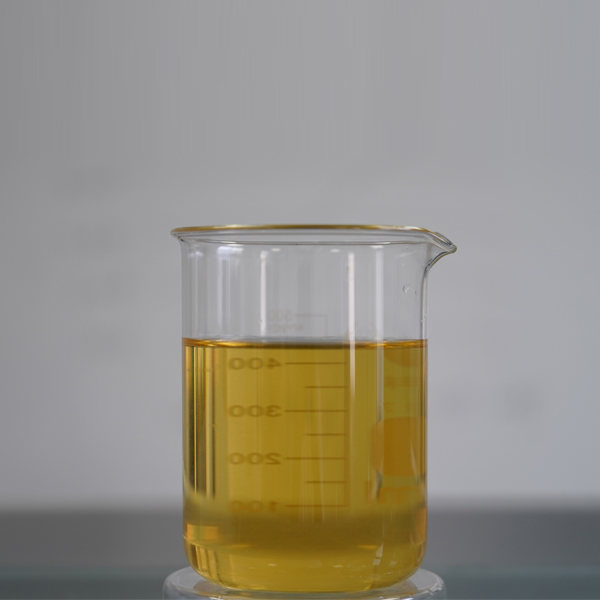
News
Nov. . 28, 2024 11:25 Back to list
Optimizing Citrus Growth with Essential Micronutrient Fertilizers for Healthy Fruit Production
The Importance of Citrus Micronutrient Fertilizers for Optimal Growth
Citrus trees, including oranges, lemons, limes, and grapefruit, are beloved not just for their delicious fruits but also for their fragrant blossoms and lush greenery. However, the successful cultivation of citrus trees requires more than just sunlight and water; it demands a keen understanding of nutrient management, particularly concerning micronutrients. Micronutrients, although required in smaller quantities than macronutrients, play a crucial role in the health and productivity of citrus plants. This article explores the significance of citrus micronutrient fertilizers and their impact on tree growth and fruit quality.
Understanding Micronutrients
Micronutrients include essential elements such as iron, manganese, zinc, copper, boron, and molybdenum. Each of these elements serves specific functions in plant biology. For example, iron is vital for chlorophyll synthesis, which enables photosynthesis. Zinc is crucial for enzyme function and growth regulation, while boron is important for cell wall formation and reproductive health. Deficiencies in these micronutrients can lead to a variety of health issues in citrus trees, including poor fruit development, leaf chlorosis, and reduced overall vitality.
The Challenge of Micronutrient Deficiencies
Citrus trees are often susceptible to micronutrient deficiencies due to various factors, including soil pH, organic matter content, and the presence of competing ions in the soil. For instance, high soil pH can limit the availability of iron, leading to iron chlorosis, a condition characterized by yellowing leaves while the veins remain green. Similarly, excessive levels of calcium can interfere with the absorption of magnesium and potassium.
Recognizing the symptoms of micronutrient deficiencies is essential for effective management. Symptoms may include stunted growth, abnormal leaf shapes, poor flowering, and ultimately, lower fruit yields. Addressing these deficiencies through targeted micronutrient fertilizers can significantly improve plant health and productivity.
Advantages of Citrus Micronutrient Fertilizers
Citrus micronutrient fertilizers are specifically formulated to address the unique nutritional needs of citrus trees
. The application of these fertilizers offers multiple benefitscitrus micronutrient fertilizer

1. Improved Fruit Quality Adequate micronutrient levels enhance the size, color, and flavor of citrus fruits. Fruits produced under optimal nutrient conditions are often more marketable and fetch higher prices.
2. Enhanced Growth and Yield Micronutrients are critical for processes such as photosynthesis and nutrient metabolism. By ensuring that citrus trees receive adequate amounts of these nutrients, growers can witness improved growth rates and increased fruit yields.
3. Disease Resistance Healthy citrus trees with balanced micronutrient levels are more resilient to diseases and pests. A robust plant structure can withstand stress factors better, leading to lower incidences of disease outbreaks.
4. Soil Health Many micronutrient fertilizers contribute to overall soil fertility by promoting beneficial microbial activity. Healthy soil ecosystems support not only citrus growth but also the surrounding environment.
Application Methods
The application of micronutrient fertilizers can be done through various methods, including soil application, foliar sprays, and fertigation. Each method has its advantages and can be selected based on the specific needs of the citrus grove and the prevailing environmental conditions. Regular soil testing is recommended to determine existing nutrient levels and inform fertilizer applications.
Conclusion
In conclusion, citrus micronutrient fertilizers play a vital role in the successful cultivation of citrus trees. By understanding and addressing the micronutrient needs of these plants, growers can enhance fruit quality, increase yields, and improve the overall health of their orchards. As the demand for high-quality citrus continues to rise, leveraging the benefits of micronutrient fertilizers will be essential for sustainable and profitable citrus production. It is a worthwhile investment that can lead to flourishing groves and bountiful harvests for years to come.
-
OEM Chelating Agent Preservative Supplier & Manufacturer High-Quality Customized Solutions
NewsJul.08,2025
-
OEM Potassium Chelating Agent Manufacturer - Custom Potassium Oxalate & Citrate Solutions
NewsJul.08,2025
-
OEM Pentasodium DTPA Chelating Agent Supplier & Manufacturer High Purity & Cost-Effective Solutions
NewsJul.08,2025
-
High-Efficiency Chelated Trace Elements Fertilizer Bulk Supplier & Manufacturer Quotes
NewsJul.07,2025
-
High Quality K Formation for a Chelating Agent – Reliable Manufacturer & Supplier
NewsJul.07,2025
-
Best Chelated Iron Supplement for Plants Reliable Chelated Iron Fertilizer Supplier & Price
NewsJul.06,2025
